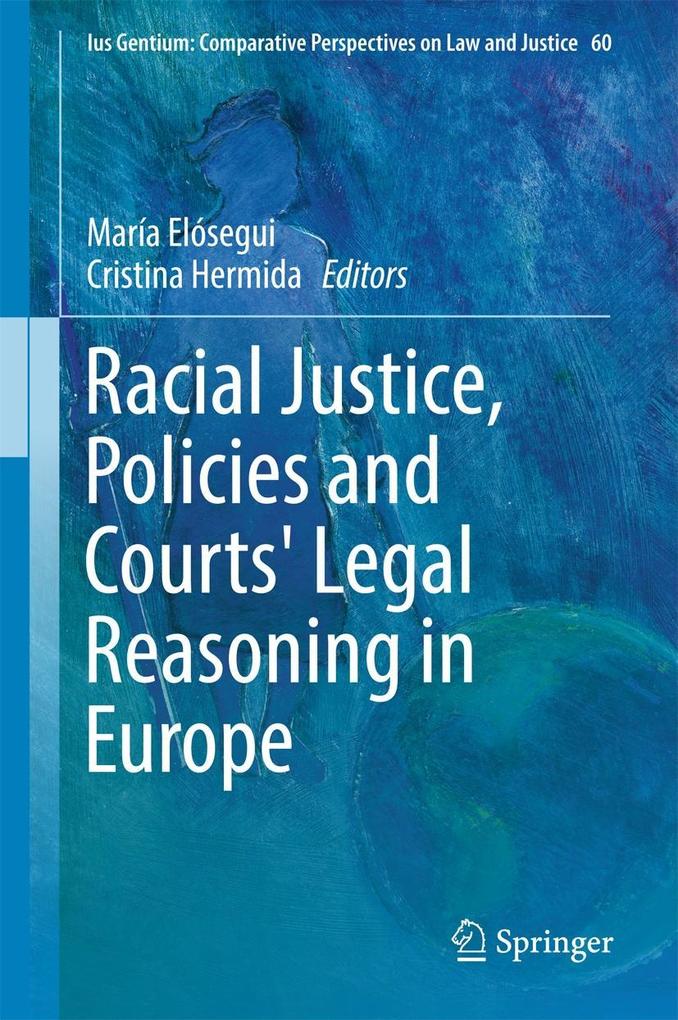
Sofort lieferbar (Download)
This volume looks at how courts and the police handle racial discrimination in Europe. The chapters show that beyond legal technique, neither the legislators nor the judges escape from their own emotions when responding to racial discrimination. But, as the authors point out, emotions are not always negative. They can also help in a positive way in judicial interpretation.
The study profiles five countries: Germany, UK, Estonia, Portugal and Spain. Each of these belong both to the European Union and to the Council of Europe. Coverage examines the responsibility of the public powers, more specifically of the legislative and judicial power, both of the police and of the judiciary, in persecuting racist behavior. In addition, the authors also consider the increase in racism in groups of citizens.
The authors argue that racial justice is a proactive reinforcement of policies, practices, attitudes and actions that lead to equal access to opportunities for all. After reading this book, readers will gain a better understanding of the reasoning of legislators, police and judges when dealing with racial discrimination in Europe today.
Inhaltsverzeichnis
Introduction (María Elósegui).- Part I: Theoretical and Legal Framework.- Chapter 1. Human Dignity as the Keystone of the Protection of Rights (Rainer Arnold).- Chapter 2. The Reasonable : Towards a Real Interculturality (Aranzazu Novales).- Chapter 3. Denial or Justification of Genocide as a Criminal Offence in European Law (María Elósegui).- Part II: Specific Thematic Cases Studies.- Chapter 4. Argumentation of the Court of Strasbourg s Jurisprudence Regarding Discrimination Against Roma (Cristina Hermida).- Chapter 5. Gypsies. Administration of Justice and Automation (Fernando Galindo).- Chapter 6. Violent Urban Gangs. Main Perpetrators in Hate Crimes (David Docal and Alberto Florez).- Part III: Specific Case Studies of Various Countries.- Chapter 7. Is Racial Justice Prevailing in Germany? (Wolfram Bechtel).- Chapter 8. Latest Developments in Combating Racism in the UK (Michael Wine).- Chapter 9. Could the Estonian Ban on Hate Speech be Interpreted in a More Efficient way? (Sten Andreas Ehrlich).- Chapter 10. A Reasonable Accommodation Experience. The Judgment of the Portuguese Constitutional Court Nº 544/2014 of 15th July (Paulo Marrecas Ferreira).- Chapter 11. Racism From the Perspective of the Brazilian Courts of Justice: A Critical Analysis (José Renato Cella and Lahis Pasquali Kurtz).
Produktdetails
Erscheinungsdatum
08. April 2017
Sprache
englisch
Auflage
1st ed. 2017
Seitenanzahl
222
Dateigröße
2,70 MB
Reihe
Ius Gentium: Comparative Perspectives on Law and Justice
Herausgegeben von
María Elósegui, Cristina Hermida
Verlag/Hersteller
Kopierschutz
mit Wasserzeichen versehen
Produktart
EBOOK
Dateiformat
PDF
ISBN
9783319535807
Entdecken Sie mehr
Bewertungen
0 Bewertungen
Es wurden noch keine Bewertungen abgegeben. Schreiben Sie die erste Bewertung zu "Racial Justice, Policies and Courts' Legal Reasoning in Europe" und helfen Sie damit anderen bei der Kaufentscheidung.









